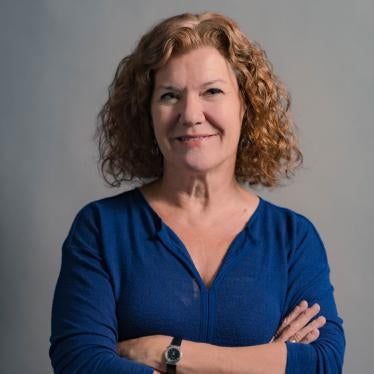When Omar Khadr first arrived at Guantanamo Bay in 2002, he was a baby-faced 15-year-old and one of the military prison’s youngest detainees. He had been severely wounded in a firefight in Afghanistan in which a U.S. army medic was killed and other U.S. soldiers injured. The incident began a 13-year ordeal marked by repeated interrogations, torture, alleged threats of rape, and a plea bargain with a fundamentally flawed military commission.
After being imprisoned nearly half his life, Khadr, now a bearded 28-year old, was finally released on bail Thursday by a court in Canada.
Khadr’s case was a debacle from the very start. Just 12 hours after sustaining life-threatening gunshot wounds to the chest in the Afghanistan firefight, he was interrogated while strapped to a stretcher, and said he was threatened with rape if he refused to cooperate. At Guantanamo, he said, he was shackled in painful positions and told he would be sent to Egypt, Syria, or Jordan for torture. He told his lawyers that after one interrogation session where he urinated on the floor, he was used as a “human mop.”
From the beginning, the U.S. government refused to recognize Khadr as a former child soldier. In 2003, when it became public that the U.S. was holding several teenage children at Guantanamo, I met with Pentagon officials to discuss their treatment. The Pentagon agreed to hold three other child detainees separately from the adults, give them special tutoring and recreational opportunities, and let them watch movies like Tom Hanks’ “Castaway.” Within a short time, these teenagers were returned to Afghanistan.
Still, the Pentagon flatly refused to discuss Khadr’s juvenile status.
Khadr is a Canadian citizen who spent his early years in Toronto. His father was an acknowledged al-Qaeda supporter who began taking Khadr at age 10 to meet al-Qaeda leaders. When Khadr was 15, he received military training, and soon ended up on the battlefield.
Like thousands of other child soldiers in dozens of countries around the world, he probably had little understanding of what he was doing or why.
International law requires countries, including the U.S., to recognize the special situation of children who have been recruited or used in armed conflict. Whether “voluntarily” or forcibly recruited, the use of child soldiers is now recognized as a serious human rights abuse, and when involving children under age 15, it’s a war crime. The U.S. is legally obliged to rehabilitate former child soldiers in its custody, and give them assistance for their psychological recovery and social reintegration.
I’ve met with dozens of former child soldiers in other countries undergoing rehabilitation. They receive medical care and help locating their family, and talk with social workers about their experiences and needs. They get help re-entering school or entering vocational training programs so that they can re-enter civilian life.
Invariably, when I ask former child soldiers what they want most, they say, “education.”
Clearly, this didn’t happen with Khadr. He was denied education and incarcerated with adults. Instead of rehabilitation, he was charged before a military commission with murder and attempted murder, in violation of the laws of war; with conspiracy, providing material support for terrorism, and spying.
I was an observer at Guantanamo in 2010 when military officers were selected to serve on the panel to decide Khadr’s fate. When questioned by lawyers, none seemed concerned that Khadr was only 15 when his alleged offense was committed, and few expressed any unease about reports of abuse at Guantanamo.
The U.S. is legally obliged to rehabilitate former child soldiers in its custody, and give them assistance for their psychological recovery and social reintegration.
The military commissions have been widely discredited. They lack basic due process and in certain circumstances could allow evidence derived from torture and other forms of coercion. The convictions of several former Guantanamo detainees were subsequently overturned when U.S. judges found that the crimes they were charged with were not subject to prosecution by a military commission. Indeed, Khadr’s alleged crime of killing another combatant on the battlefield is not recognized as a war crime anywhere else, and his case is also on appeal.
After eight years of incarceration, Khadr finally accepted a plea deal in 2010, sentencing him to eight years in prison on top of the years he already served. Later, he said he accepted the guilty plea only to get out of Guantanamo. In 2012, he was transferred to serve out the remainder of his sentence in Canada. Where the U.S. failed, Canada should have done the right thing and facilitated Khadr’s rehabilitation. Instead, it recognized Kahdr’s conviction, imprisoned him, and even this week, tried to block his release. Nevertheless, a Canadian judge granted him bail today, saying, “Mr. Khadr, you’re free to go.”
Only now can Khadr begin to put his ordeal behind him. Khadr’s lawyer, Dennis Edney and his wife Patricia have offered to have Khadr live with their family and pay for his education. The King’s University in Edmonton has offered to accept Khadr if he wishes to pursue his education. Yet Canada has done nothing – no offers of education or access to services necessary to help Khadr reintegrate into Canadian life.
Khadr’s release was long overdue and does little to compensate for 13 years of abuse and imprisonment. But hopefully now, he can finally begin a new life.
Jo Becker is the children’s rights advocacy director at Human Rights Watch. Follow her on Twitter @jobeckerhrw.








